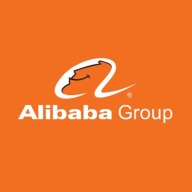

Alibaba Cloud and Google Cloud compete in the cloud services category. Google Cloud has the upper hand with its robust features and wider global presence, whereas Alibaba Cloud appeals to cost-sensitive markets, particularly in Asia.
Features: Alibaba Cloud offers affordability, flexibility, and a strong AI component, with features like ECS and a focus on security in Asia. Its local infrastructure facilitates competitive pricing. Google Cloud is known for its scalability, managed services, and seamless integration, offering a broad range of features and a strong security framework.
Room for Improvement: Alibaba Cloud needs to enhance user-friendliness, improve its support services, and address latency and connectivity issues outside China. Google Cloud could improve cost transparency, better integrate with non-Google ecosystems, and enhance analytics and support for right-to-left languages.
Ease of Deployment and Customer Service: Both platforms offer flexible deployment options. Alibaba Cloud's support is responsive, but Google Cloud is noted for its ease of deployment, although its support services need improvement in accessibility and knowledgeability.
Pricing and ROI: Alibaba Cloud offers cost-effective solutions, especially in China and nearby regions, with a pay-as-you-go model. Google Cloud, while pricier, is considered worth the investment given its extensive features and adaptability, enabling significant cost savings on infrastructure and offering immediate pricing benefits in certain markets.
| Product | Market Share (%) |
|---|---|
| Google Cloud | 4.3% |
| Alibaba Cloud | 7.2% |
| Other | 88.5% |


| Company Size | Count |
|---|---|
| Small Business | 10 |
| Midsize Enterprise | 3 |
| Large Enterprise | 7 |
| Company Size | Count |
|---|---|
| Small Business | 42 |
| Midsize Enterprise | 8 |
| Large Enterprise | 32 |
Alibaba Cloud offers a comprehensive suite of cloud computing services to support growing enterprises worldwide, including data storage, relational databases, big-data processing, and content delivery networks.
Google Cloud is an Infrastructure as a Service Cloud (IaaS) and Platform as a Service (PaaS) solution that provides infrastructure tools and services for building applications on top of a public cloud computing platform. As one of the leading global infrastructures, this product allows users to securely manage enterprise data, receive valuable insights, and store documents. Google Cloud provides its various services through tools and services for data warehousing, security key enforcement, application programming interface (API) management, artificial intelligence (AI), and machine learning (ML).
The use cases of Google Cloud can be divided into four main categories:
The solution is utilized by organizations of all sizes and industries, as it is suitable for the following purposes:
Google Cloud Features
Google Cloud offers multiple features for its clients. Some of these include:
Google Cloud Benefits
Google Cloud brings various benefits to its users. Some of these include the following:
Reviews from Real Users
Isuru P., an assistant vice president at a tech services company, likes Google Cloud because it is easy to deploy next-generation applications using it.
An IT solutions consultant at a tech services company rates Google Cloud highly because they find the solution stable with a good user experience and a straightforward setup.
We monitor all Infrastructure as a Service Clouds (IaaS) reviews to prevent fraudulent reviews and keep review quality high. We do not post reviews by company employees or direct competitors. We validate each review for authenticity via cross-reference with LinkedIn, and personal follow-up with the reviewer when necessary.